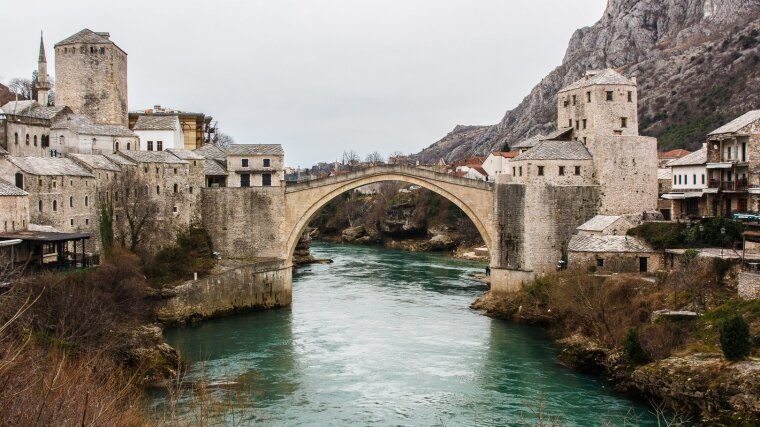
The Mostar Bridge – destroyed in the war that tore apart former Yugoslavia and rebuilt thereafter became a symbol not only for the return of war, nationalism, and conflict in Europe after the end of the Cold War. Its reconstruction also signals the quest for inter-ethnic reconciliation and communication across cultures. Based on long lasting research on conflict in former Yugoslavia and the ensuing European integration process, we aim to build bridges across various divides:
- across disciplinary boundaries, including ethics and theology, history, international law, psychology and sociology;
- across our national boundaries by reaching out to politics and academia worldwide;
- across cultural boundaries by promoting dialogue among diverse cultures and groups;
- across the boundaries of academia by trying to serve society with the insights we gain; and
- across the boundaries within our discipline by connecting literatures, bridging theoretical schools, and mixing methods.
Our core competence is the study of peace and conflict and of international organizations, which we combine in the upcoming Master programme International Organizations and Crisis Management. Regarding peace and conflict, much of our research and teaching is about intra-state conflict, esp. secession and nationalism, and about different methods of conflict prevention and resolution, in particular
- mediation,
- peacekeeping,
- humanitarian intervention,
- sanctions and
- reconciliation
We are also very much interested in the ethics of peace, including just war and just peace. The book series Innovation in Conflict Research we publish with Springer is dedicated to new theoretical, methodological or other avenues of studying conflict worldwide.
Our interest in international organizations is focused on conflict and cooperation among organizations, security governance in Europe, legitimacy and effectiveness, also on EU foreign policy, while working closely with our colleagues at the Institute specializing in European Studies and International Organizations.
We regularly offer courses on German foreign policy, including a field trip to Berlin once a year where we visit ministries, think-tanks and media to understand the decision-making process. Regionally speaking, our main focus is on Eastern Europe, having entertained a double Master degree with an Ukrainian university for more than ten years. However, we also have a strong interest in the Middle East, Africa and the United States. Furthermore, we are responsible for teaching qualitative methods at our Institute.
We strive for theory-guided, methodologically sound research and teaching with in-depth empirical analysis. Our teaching formats range from classical lecture series and seminars to simulations, reading courses and classes debating current issues of world politics. Our approach is strongly inter-disciplinary.
We invest a lot in our PhD and habilitation programme, including two workshops per year where we present and discuss progress of each research project. Strong mentoring takes place in a stimulating environment where researchers pursuing similar topics connect, profit from one another and reach out into the wider academic community.
Our Departments motto reflects our dedication to innovation and creativity. It is derived from the American inventor Alexander Graham Bell:
Do not always follow the path laid down, it leads where others have already gone.
Further information about our research topics can be found here.